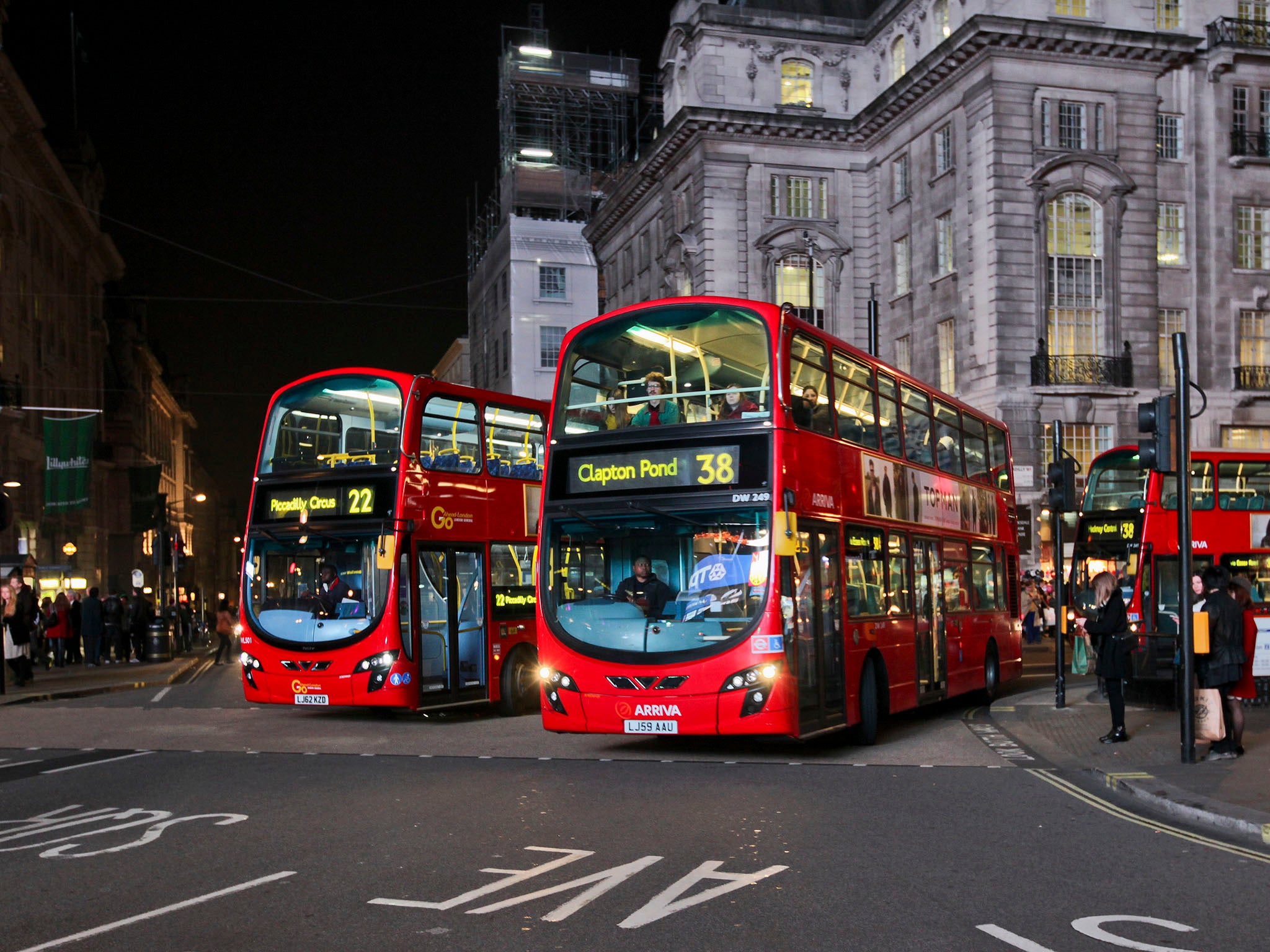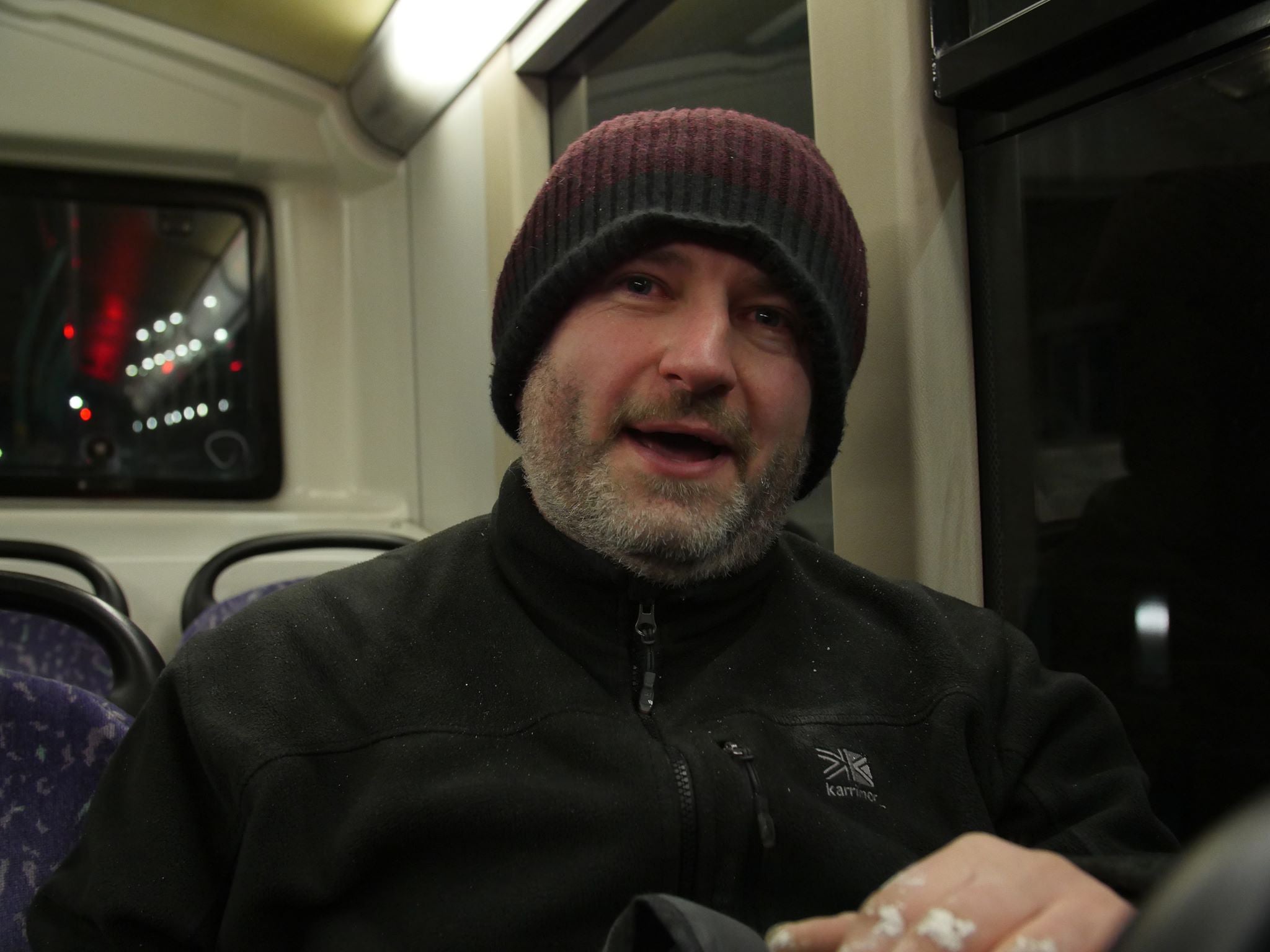Rough sleeping on London’s night buses increases 121% in four years
Sadiq Khan described the findings as “shocking” and vowed to tackle homelessness in the capital

Your support helps us to tell the story
From reproductive rights to climate change to Big Tech, The Independent is on the ground when the story is developing. Whether it's investigating the financials of Elon Musk's pro-Trump PAC or producing our latest documentary, 'The A Word', which shines a light on the American women fighting for reproductive rights, we know how important it is to parse out the facts from the messaging.
At such a critical moment in US history, we need reporters on the ground. Your donation allows us to keep sending journalists to speak to both sides of the story.
The Independent is trusted by Americans across the entire political spectrum. And unlike many other quality news outlets, we choose not to lock Americans out of our reporting and analysis with paywalls. We believe quality journalism should be available to everyone, paid for by those who can afford it.
Your support makes all the difference.Rough sleeping on London’s night buses has increased 121 per cent in the past four years, according to an internal report by Transport for London.
Across the English capital, there were 213 driver incident reports between 1st November 2015 and 24th January 2016 – an increase from 97 over the same period in 2012/13.
City Hall described the findings, published in End of the Line, a multimedia project about the issue, as “shocking”.
A spokesperson for Sadiq Khan, the newly elected Mayor of London, told The Independent: "This report is yet another example of the previous Mayor's failure to deal with the housing crisis and, particularly, homelessness in London.
“Sadiq Khan will be working closely with government, Transport for London, local authorities and the voluntary sector to tackle the issue of rough sleeping in the capital.”
Rough sleepers’ refusal to alight the bus at the end of the line were the cause of 95 per cent of these reports. These figures therefore do not include a record of all rough sleepers – that number is likely to be far higher.

Westminster has the highest number of rough sleeping reports – three times more than any other, perhaps because many night bus routes begin in or pass through the borough.
Last September, New Horizon Youth Centre, a London day centre, was forced to start giving out night bus passes because there was nowhere left for people to sleep.
Shelagh O’Connor, the charity's director, argued that by looking after homeless people, all of society will benefit.
Ms O'Connor said: "We need more investment in emergency spaces. Because if you have somebody rough sleeping even for a few weeks, you will see a deterioration in their mental health, in their whole physical well being, perhaps turning to street crime or prostitution."
Paul Noblet, homelessness charity Centrepoint’s head of public affairs, said: “In the 20th century in the UK, it's really scandalous that young people are having to sleep on night buses. But funding cuts mean hostels might have to close.”
Anthony Akers, Transport for London's head of bus operations, leads an outreach team on London's buses. He said: “A lot of people think of rough sleepers as people who have drink and drug issues, where actually it could be a personal break-up, or a loss of a job that causes it."
The number of people in London becoming homeless due to the ending of shorthold tenancies – the type most commonly held by private renters – has increased more than 700 per cent since 2009/10.
The average price of a home in London has broken through the £600,000 barrier, and has almost doubled since 2009, according to figures from a leading property firm, LSL.
Join our commenting forum
Join thought-provoking conversations, follow other Independent readers and see their replies
Comments